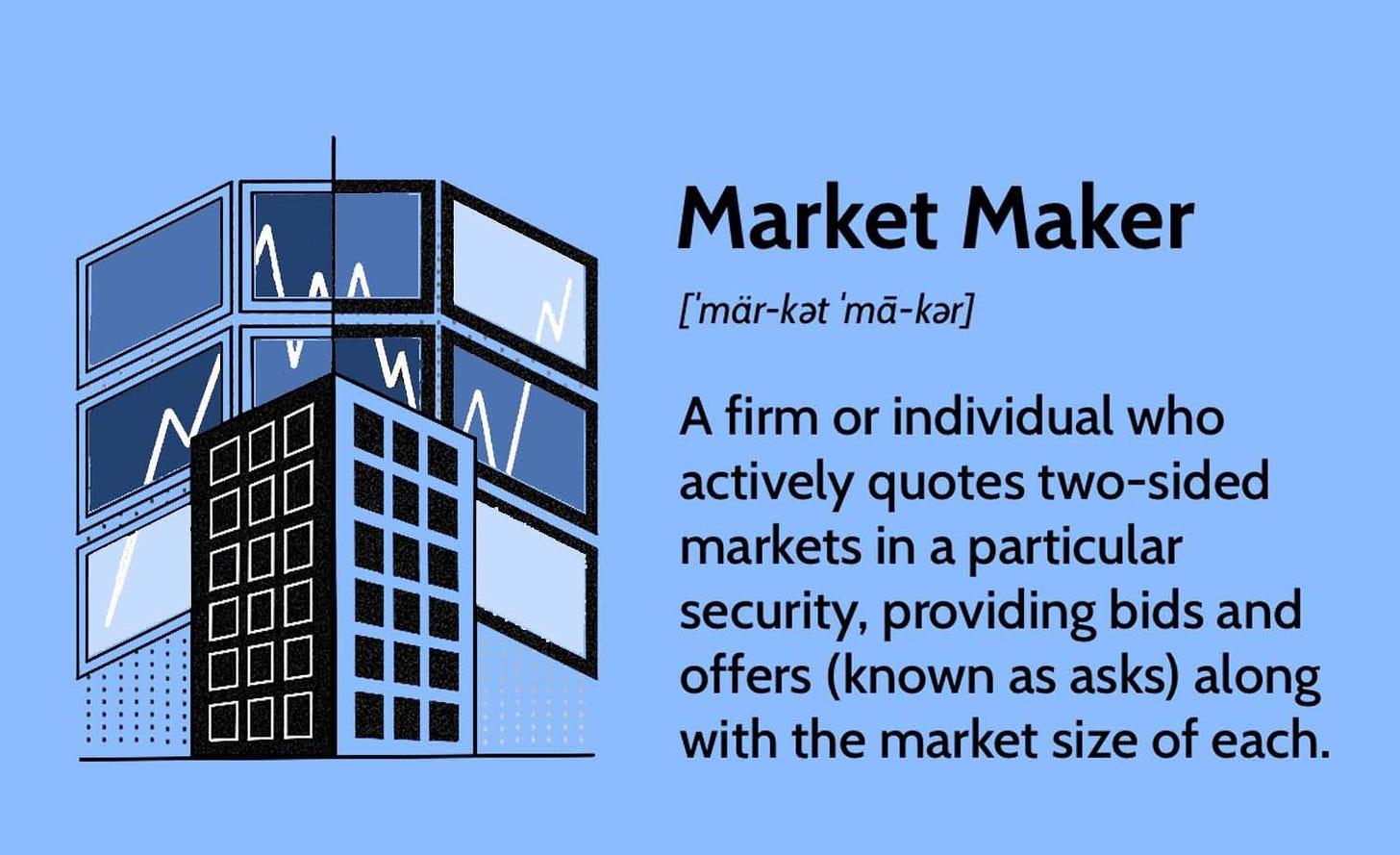The crypto industry has been plagued by exchanges doing internal proprietary trading and market-making, where they trade tokens for a profit, raising concerns about potential conflicts of interest.
With 10+ years of experience in the crypto industry under my belt - running both an exchange & market maker - I want to provide a bit of historical context to the whole concept of exchanges doing market-making themselves.
First, to mention, every exchange operator learns on the first day of running a trading venue - usually the hard way - that liquidity is the key ingredient of growing and scaling an exchange.
I saw that first running Lykke, where we struggled quite a lot since there were not a lot of reliable crypto liquidity providers.
In the early days, it was really really difficult to find a good market-making partner, hence crypto exchanges resorted to being also their own market maker, more from necessity than opportunity.
Sometimes the market-making of the exchange was done on an “arms-length” basis with an external, though closely tied trading firm to the exchange, but a more common approach was to have an internal proprietary trading desk, that was the initial & last provider of liquidity, at all times. Just think of FTX and Alameda Research!
Today, the situation is very much different and an up-and-coming exchange can ring up many crypto heavyweights, such as Wintermute, GSR, Jump Crypto, Jane Street, and Amber Group to name a few, and get the ball rolling from the first days of launching!
While there is a strong & convincing argument that internal market-making will be phased out over time, I still see pretty much every exchange out there doing prop trading against clients, and it’s not obvious that “self-regulatory” efforts would change that.
Especially, if we consider DEXs, where Automated Market Makers (AMMs) by definition are both trading venues & market makers, packaged and glued together via smart contracts.
Liquidity is the name of the game in the crypto industry, and whatever it takes for a trading venue to achieve that — including doing market-making themselves — will continue being the rule, rather than the exception.





Parallell to proof of reserves, exchanges should disclose their trading for own or closely related accounts, as a minimum.
Rather, as you suggest, trading for exchanges own account or related parties should be prohibited and left to third party players. In the long run, liquidity would be better and all parties would gain, including exchanges
Hopefully we can solve this same problem with stock brokerages at dinari.com :)